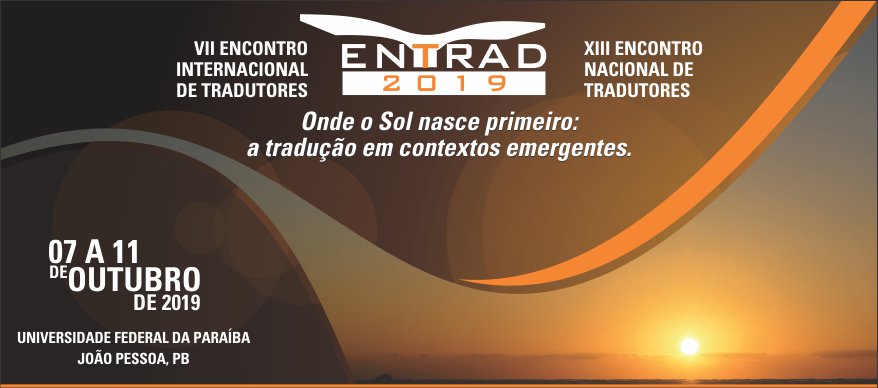Antes de se inscrever, leia as orientações AQUI
Tradução e Literatura de Fronteira: textos, línguas, identidades
Translation and Literature of the Borders: texts, languages, identities
Fabíola Reis
UNIFAP
fsfreis@yahoo.com.br
http://lattes.cnpq.br/2099575783439005
John Milton
USP
jmilton@usp.br
http://lattes.cnpq.br/5756833764522214
Idiomas de trabalho | Work languages: Português, English, Español
Resumo: No texto Littérature de Frontière, itinéraire d’un écrivain (2007), Claudio Magris apresenta exemplos de como a reorganização geográfica da Europa torna os textos de alguns escritores europeus interessantes não apenas em relação aos aspectos das fronteiras geográficas, políticas e linguísticas, mas também quanto “às fronteiras psicológicas, sociais e interiores” (2007, p. 14): pessoas que moram na fronteira, que falam uma língua na escola, outra na rua, um dialeto com os avós. O simpósio é um convite para reflexões sobre as relações de identidade na fronteira a partir da tradução, observando aspectos entre as linguagens e culturas. Textos que confrontam território e tradução sem deixar de assinalar o caráter transitório que a linguagem impõe ao leitor ao exibir imagens que se entrelaçam sem, por isso, se dissolverem, como é o caso do portunhol selvagem, língua fronteiriça adotada pelo escritor brasiguaio Douglas Diegues. A fronteira remete aos limites estabelecidos por domínios distintos, expondo campos aparentemente disjuntos, onde o transpassar não autorizado é visto como uma agressão, uma fresta na fronteira que oportuniza a comunicação, como os checkpoints entre Isreal e Palestina,o antigo Checkpoint Charlie da Alemanha, a Ponte Binacional Brasil-Guiana Francesa ou a Ponte da Liberdade na fronteira Brasil-Paraguai. Em vista disto, este simpósio aceita trabalhos relacionados aos estudos de fronteira, como a literatura da região, os aspectos linguísticos, sociais e/ou identitários, movimentos migratórios, tradução de obras de autores/temas de fronteira; também agenciando trabalhos que apresentam a parte transitória do texto literário ao pensar a obra literária como veio de passagem e como ato tradutório. Quais são os riscos de atravessar a fronteira?
Palavras-chave: Tradução e fronteira, portunhol selvagem, Literatura de Fronteira
Abstract: In the text Littérature de Frontière, itinéraire d’un écrivain (2007), Claudio Magris presents examples of how the geographical reorganization of Europe makes the texts of certain European writers interesting not only in terms of geographical, political and linguistic borders but also as “psychological, social and internal frontiers” (2007: 14): people living on the border, who speak one language at school, another on the street, and a dialect with their grandparents. This symposium is an invitation for reflections on the identity relations on the border from through translation, observing various of the aspects between the languages and cultures. Texts that confront territory and translation while pointing out the transitory nature that language imposes on the reader by displaying images that intertwine and therefore dissolving, as is the case of the “savage portunhol”, a frontier language adopted by the Brazilian-Paraguayan writer Douglas Diegues. The boundary goes back to the limits established by distinct domains, exposing seemingly disjointed fields, where unauthorized trespassing is seen as an aggression, a border gap that facilitates communication, such as the Israel-Palestine checkpoints, the former Checkpoint Charlie in Berlin, the Binational Bridge between Brazil and French Guiana, and the Liberty Bridge on the Brazil-Paraguay border. This symposium will thus welcome presentations related to border studies and translation, such as regional literature, linguistic, social and / or identity, migratory movements, translation of works by authors on the frontiers or about frontier themes; it will also accept proposals that present the transitory part of the literary text when thinking of the literary work as a passage and as an act of translation. What are the risks of crossing the border?
Keywords: Translation and frontier, Wild Portunhol, Literature of the Borders
Antes de se inscrever, leia as orientações AQUI
